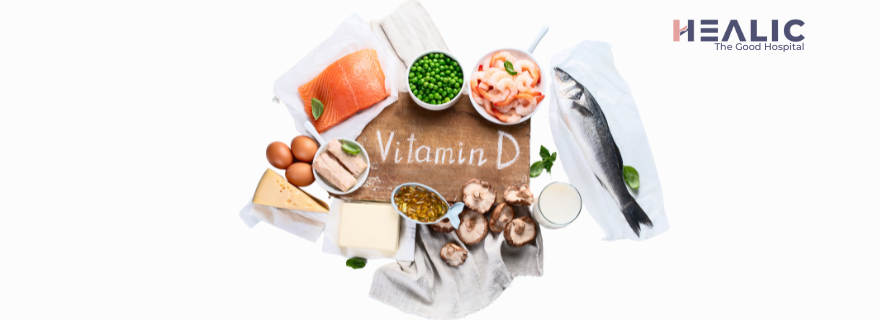Chickenpox (for Kids): Symptoms, Prevention, and Management – Expert Insights for Parents
Chickenpox, or Varicella, is a highly contagious viral disease primarily affecting children, caused by the Varicella-Zoster virus. It can also lead to severe complications in individuals with weakened immune systems. Here’s an extensive insight into the various aspects of chickenpox, including its symptoms, prevention, and management.
Age Group Affected by Chickenpox
Chickenpox typically impacts children aged 5 to 10; however, it can also occur in adults, potentially leading to more severe complications.
Cause and Transmission of Chickenpox
The Varicella-Zoster virus responsible for chickenpox spreads through direct or indirect contact, making it highly contagious and emphasizing the need for preventive measures.
Prevalence of Chickenpox
This global disease is observed across various climatic conditions, with higher occurrences in both colder and warmer seasons, necessitating year-round vigilance.
Symptoms and Progression of Chickenpox
Chickenpox usually begins with body aches, mild fever, and characteristic rashes that evolve through different stages, from red spots (Macules) to scabs (Crusts).
Complications Arising from Chickenpox
While most cases resolve without complications, rare instances may lead to severe outcomes such as bacterial superinfections, septicemia, pneumonia, encephalitis, and more.
Treatment and Management of Chickenpox
There is no specific cure for chickenpox; treatment is mainly symptom-oriented. Antiviral medications like Acyclovir may be prescribed for faster recovery, with Paracetamol for fever management and antihistamines for itch relief. Regular nail trimming helps prevent secondary bacterial infections.
Prevention Strategies for Chickenpox
Precautionary measures are vital to contain the spread of chickenpox, including refraining infected children from attending school for about a week post rash appearance, vaccination, and immunoglobulin injections in specific circumstances.
Myths and Facts About Chickenpox in Kids
Myth: Natural immunity acquired from contracting chickenpox is better than immunity from the vaccine.
Fact: While natural immunity provides protection, the chickenpox vaccine offers a safer way to acquire immunity without the risks associated with contracting the disease.
Myth: Once a child has chickenpox, they are immune for life.
Fact: While most individuals develop immunity after having chickenpox, there have been rare cases of recurrent or secondary instances of the disease, particularly in individuals with weakened immune systems. Vaccination provides additional protection.
Myth: Chickenpox is just a mild childhood illness and not a serious concern.
Fact: While most cases of chickenpox are mild, complications can arise, leading to severe outcomes such as bacterial superinfections, septicemia, pneumonia, and encephalitis. It is important to take chickenpox seriously and seek appropriate medical care.
Myth: Children with chickenpox can return to school once the rash disappears.
Fact: It is advisable to keep children with chickenpox at home until all the blisters have crusted over to prevent infecting other children, as the virus can still be contagious.
Myth: The chickenpox vaccine is not effective in preventing the disease.
Fact: The chickenpox vaccine is highly effective in preventing the disease and is recommended for all who have not had chickenpox before.
Myth: All children must get the chickenpox vaccine.
Fact: While vaccination is recommended for all who have not had chickenpox before, some individuals with specific medical conditions may not be eligible for the vaccine. Consult a healthcare provider for personalized recommendations.
FAQs related to Chickenpox in Kids
Which age group is most susceptible to chickenpox?
Primarily affects children between 5 to 10 years, but can occur at any age.
How can I tell if my child has chickenpox?
Look for symptoms like body aches, mild fever, and the characteristic rash that progresses through different stages from red spots to scabs.
Can a person get chickenpox more than once?
While most individuals develop immunity after having chickenpox, there have been rare cases of recurrent or secondary instances of the disease, particularly in individuals with weakened immune systems. Vaccination provides protection against the virus and reduces the risk of contracting the disease more than once.
Is it necessary to keep my child with chickenpox at home?
Yes, it is important to keep your child at home to prevent the spread of the virus for about a week after the rash appears.
Is chickenpox vaccine effective in preventing the disease?
Yes, the chickenpox vaccine is highly effective in preventing the disease, recommended for all who have not had chickenpox before.
What can I give my child for the itching caused by chickenpox?
Antihistamines and calamine lotion can help relieve the itching. Consult a healthcare provider for appropriate medication for your child.
Can my child with chickenpox go back to school once the rash has disappeared?
It is advisable to keep your child home until all the blisters have crusted over to prevent infecting other children.
What are the risks of not vaccinating my child against chickenpox?
Not vaccinating your child increases their risk of contracting chickenpox and experiencing its potential complications.
For more detailed information and personalized advice on managing chickenpox in kids, consult with a healthcare provider. Stay well-informed and prioritize your child’s health.
Remember, ‘Stay informed, stay healthy!’ and ensure to follow proper health guidelines for the prevention and management of chickenpox.






